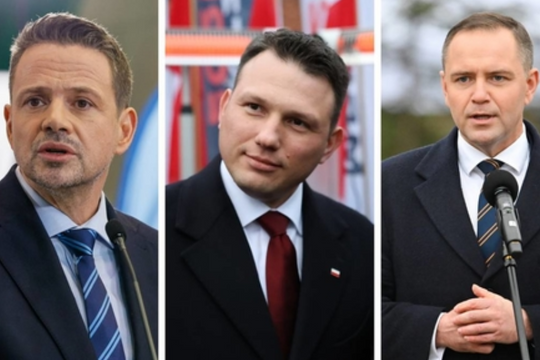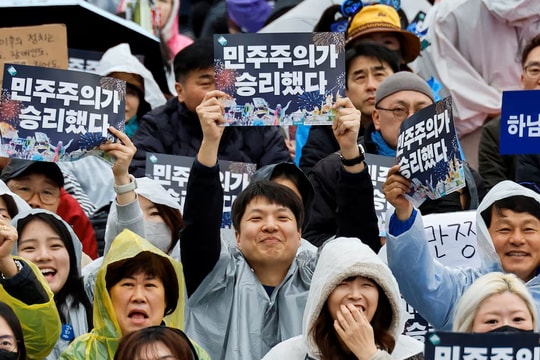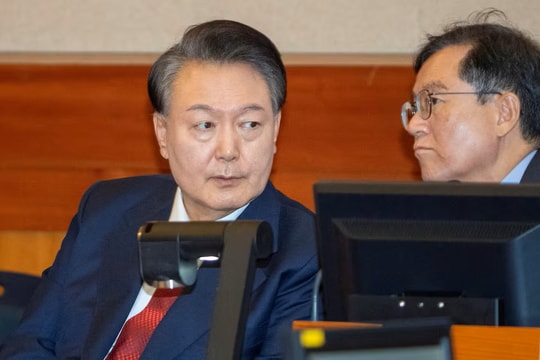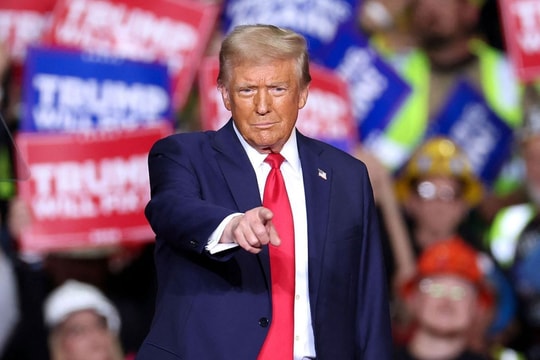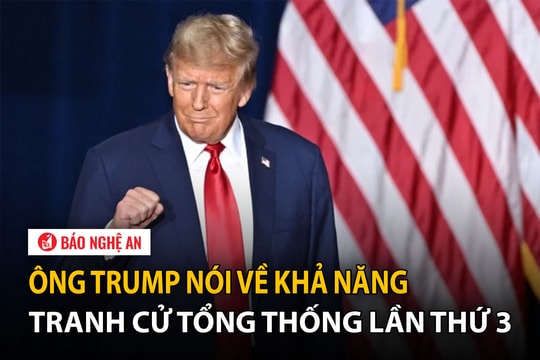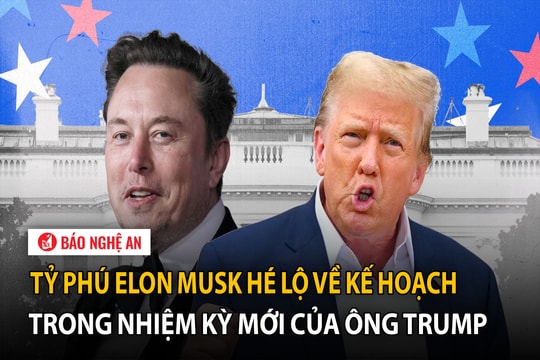The election that changed French politics
(Baonghean.vn)- The first round of the 2017 French presidential election ended with results not much different from predictions. But that further reinforced the view that French politics has changed. And thus, the race in the second round will also be uncertain.
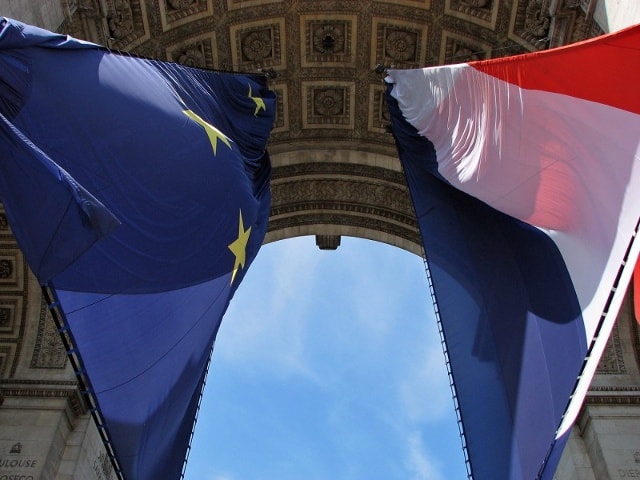 |
French election and voters' choice pose big questions for the European Union (New York Times) |
Strange ending
According to the results announced by the French Interior Ministry after counting almost all 47 million votes, independent candidate Emmanuel Macron led with 23.82% of the votes, while Marine Le Pen, the far-right candidate, came in second with 21.58%. Of the 9 candidates eliminated, 2 key candidates including former Prime Minister Francois Fillon won less than 20% of the votes, almost equal to the leader of the far-left movement Jean-Luc Melenchon.
Thus, Mr. Macron and Ms. Le Pen will enter the second round of the French presidential election, scheduled to take place on May 7. Speaking to supporters in Paris after the preliminary results, Mr. Macron said he wanted to mobilize “the largest possible” support before the second round of the election, which takes place on May 7.
Mr. Macron thanked his supporters for a campaign that “changed the course of the country.” The candidate, born in 1977, also called on the French people to trust in Europe instead of fear, which is believed to be a reference to Ms. Le Pen’s anti-EU campaign. Ms. Marine Le Pen also declared victory in the first round of the French presidential election and called the election result a “historic event.” Ms. Le Pen said that France’s survival was at stake and it was time to liberate the French people from “arrogant rulers.”
Leaders of many European countries have also expressed their opinions, in which many leaders and politicians congratulated candidate Emmanuel Macron. President of the European Commission (EC) Jean-Claude Juncker sent his congratulations to the candidate considered “pro-European” Emmanuel Macron, at the same time wishing this 39-year-old candidate “good luck” in the second round of the election scheduled to take place on May 7.
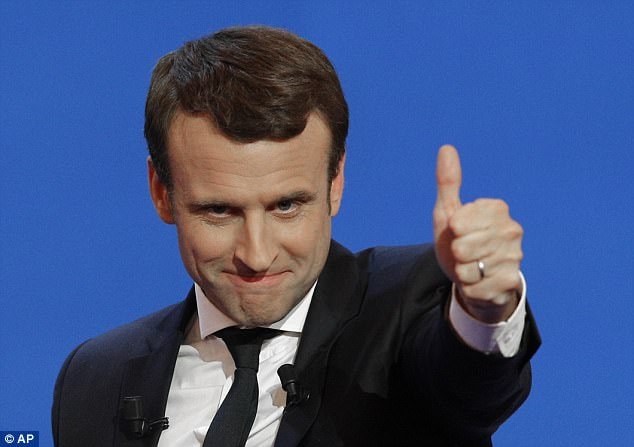 |
If he wins in the second round, Mr. Emmanuel Macron will become the youngest leader in modern French history (Telegraph). |
German Chancellor Angela Merkel also wished Mr. Macron “all the best” in the next two weeks, referring to the second round of the race for the Elysee Palace. The German leader said that the candidate Macron's support for a strong European Union (EU) and a market economy was a good thing.
German Foreign Minister Sigmar Gabriel said that Mr. Macron will become the next President of France. Danish Prime Minister Lars Lokke Rasmussen congratulated candidate Macron and said that Europe needs a reformed and open France, and expressed confidence that Mr. Macron will win against far-right candidate Marine Le Pen.
Thus, for the first time, France has two candidates entering the second round of the election from parties that have never led the country. These two people have completely opposite political views and strategies for developing the country. Mr. Macron supports liberal views, reforming the "failed" and "empty" French political system; relaxing labor laws; cutting business taxes; reforming the unemployment system; reducing public spending... Meanwhile, Ms. Le Pen prioritizes protectionist and xenophobic agendas such as promoting the rights of French citizens in employment, housing, and welfare.
She also advocates raising taxes on foreign workers and imports; supporting proportional representation in parliament; negotiating with the EU to return "full sovereignty" to France including the Franc; and even holding a referendum to leave the EU...
This contrast highlights the differences between the two men. But it also shows what French voters now care about with their votes.
Another “unprecedented event” is that for the first time in the history of the Fifth Republic of France, no candidate from either the Socialist (Left) or the Republicans (Right) parties advanced beyond the first round. This was a historic failure because the biggest characteristic of French politics from 1958 to the present is bipolarity, meaning that these two parties take turns holding power in both the executive branch and dominating in Parliament.
There has never been a time when the total number of votes that the two candidates of these two major traditional parties combined in the first round was less than 45%, and there has never been a time when a candidate of the Socialist Party (Benoit Hamon) received less than 10% of the French people's votes.
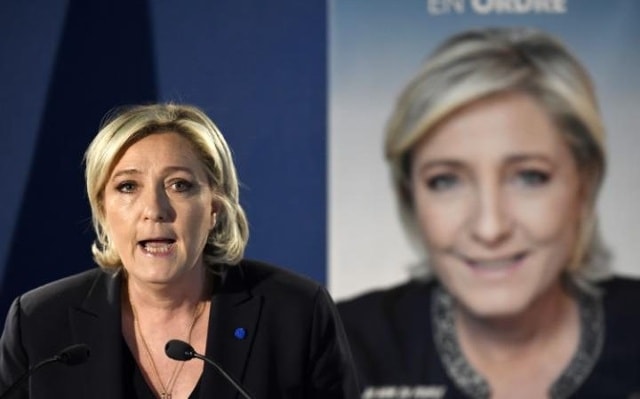 |
The rise of far-right politician Merine Le Pen is a stunning change in French politics and voter sentiment (Daily Mail) |
Many questions arise
Based on public opinion trends and analysts’ calculations, the representative of the En Marche movement - Macron is likely to defeat Ms. Le Pen in the second round of voting. However, the question is how Mr. Macron will run the country with his fragile political “capital”. First, his party is still “a big question”.
This is because the En Marche movement he founded is only 1 year old, and still plays a very obscure role in the French National Assembly. Therefore, Mr. Macron is said to have to venture into "unknown waters" when he takes power. No French president has ever come from such a virtually unknown movement in French politics.
Meanwhile, the painful defeat of former Prime Minister Fillon will surely only increase the determination to “take revenge” on the right-wing Republicans, who will certainly do their best to ensure that they have a majority in the French National Assembly so that Mr. Macron’s time in power – if it becomes a reality – will be a nightmare.
Therefore, the first challenge that may last for the entire term of Mr. Macron will be to find a coalition in the French National Assembly, or at least to compromise with the remaining major political parties. Otherwise, a lone Macron and the En Marche movement will find it difficult to "pass the barrier" of the National Assembly to implement their policies.
Phan Tung
| RELATED NEWS |
|---|


